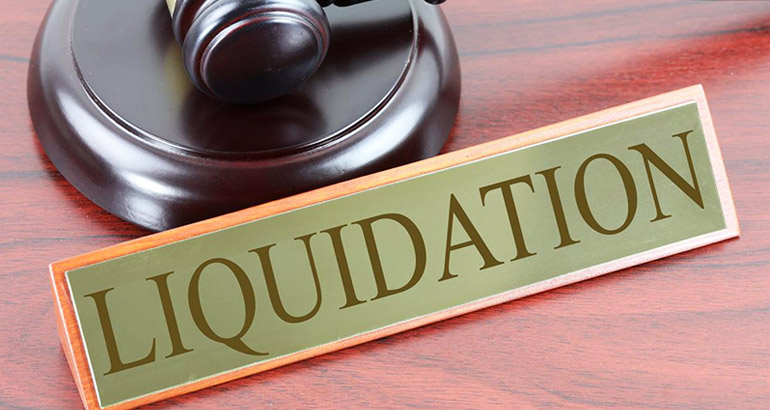Company Liquidation Things To Know Before You Get This
Company Liquidation Things To Know Before You Get This
Blog Article
Fascination About Company Liquidation
Table of ContentsLittle Known Facts About Company Liquidation.Fascination About Company LiquidationCompany Liquidation Things To Know Before You BuyAll About Company LiquidationUnknown Facts About Company Liquidation
A liquidator is particularly selected to manage the ending up of a business's affairs in order for it to be shut down normally when the business is declaring bankruptcy. The liquidator is an objective 3rd celebration who oversees the sale of company properties in order to repay any kind of arrearages.Their function includes, yet is not restricted to: Objective Overseer: A liquidator is tasked with acting as an impartial 3rd party to manage the entire company liquidation procedure. Produce Statement of Matters: Liquidators need to produce a comprehensive declaration of events document. This document is dispersed to lenders, detailing the existing monetary status of the business at the time of its liquidation.
After the liquidation of a firm, its existence is erased from Business House and it discontinues to be a legal entity. If supervisors navigated the procedure uncreative, there would be no fines or personal responsibility for strong debts expected. Currently, with a clean slate, directors can check out new service possibilities, though expert appointment is suggested.
Some Known Details About Company Liquidation
For instance, if greater than 90% of all business investors concur, liquidation can occur on short notice within seven days, the minimal legal notification for financial institutions. Typically, the bigger the liquidation and the more possessions and funding the service has, the longer the procedure will certainly take. 'Do I need to pay to liquidate my business?', the response will certainly rely on whether your organization has any kind of properties remaining when selling off.

We understand that no two companies coincide, which is why we will certainly put in the time to be familiar with your service so we can suggest the most effective strategy for you. We just operate in your finest rate of interests, so you can be absolutely positive in the service we provide.
Some Known Questions About Company Liquidation.
In the UK, there is an established procedure to shutting down or reorganizing a minimal business, whether it is solvent or bankrupt. This procedure is understood as liquidation and can only be managed by a qualified bankruptcy practitioner (IP) according to the Bankruptcy Act 1986. There are four major kinds of company liquidation procedure: Financial institutions' Volunteer Liquidation (CVL); Mandatory liquidation; Administration; and Participants' Voluntary Liquidation (MVL).

In these situations, it is important that the business ceases trading; if the business remains to trade, the directors can be held personally liable and it can lead to the insolvency practitioner reporting wrongful trading, understood as misfeasance, which may lead to lawful action. The supervisors select an insolvency professional and once this has actually been agreed and verified, there is a meeting with the shareholders.
The directors are no longer involved in what happens, including the sale of the company's assets. If the directors want any of the assets, they can notify the IP.
The Facts About Company Liquidation Uncovered
The main difference is that the firm's lenders put on the court for an ending up order which compels the financially troubled company into a liquidation procedure. Lenders take this action as a last hotel since they haven't received settlement with various other types of negotiation. The court appoints a bankruptcy specialist, additionally referred to as a main receiver, to carry out the compulsory business Website liquidation process.
This kind of company liquidation is not volunteer and directors' conduct is reported to the UK's Secretary of State once the liquidation procedure has been finished. Any type of supervisor that fails to coordinate with the IP or has been involved in supervisor misbehavior, or a fraudulent act, may result in serious repercussions.
It is used as a way to safeguard the business from more tips here any lawful activity by its financial institutions. The supervisors of the company agree to make regular payments to settle their debts over a period of time.
More About Company Liquidation
This supplies the business with time to develop a plan going onward to save the business and avoid liquidation. At this factor, directors hand control of the company over to the assigned manager. If a company is solvent yet the supervisors and shareholders wish to close business, a Members Volunteer Liquidation is the right choice.
The company liquidation procedure is handled by a liquidator designated by the supervisors and investors of the company and they have to sign a declaration that there are no financial institutions continuing to be. The liquidation procedure for an MVL resembles that of a CVL in that assets see this page are realised yet the earnings are dispersed to the directors and the investors of the business after the liquidator's costs have been paid.
Report this page